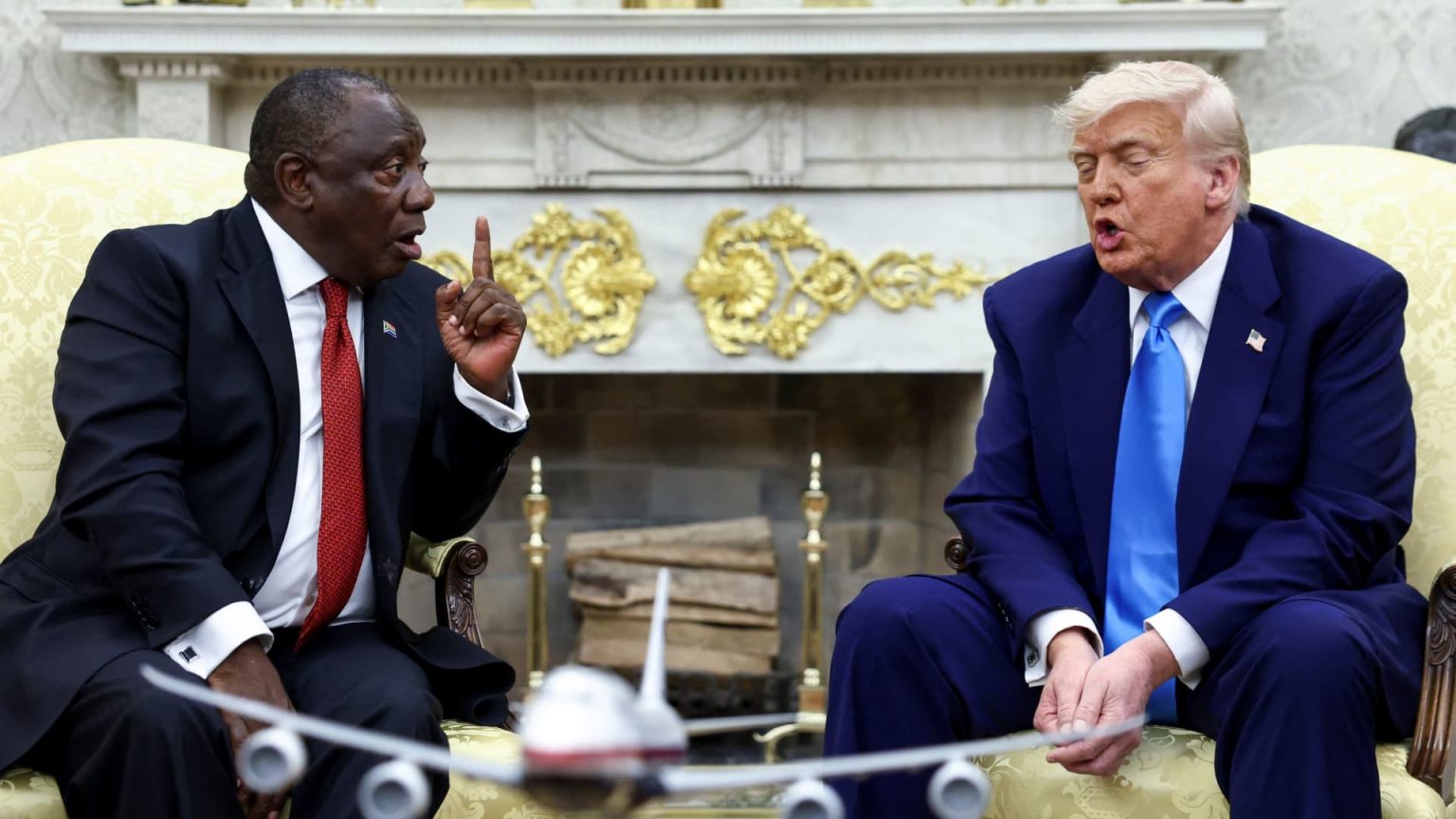A recent meeting between President Donald Trump and South African President Cyril Ramaphosa quickly spiraled into controversy as Trump made allegations about a genocide against white South Africans. These claims were met with fierce denial from Ramaphosa and sparked tensions amidst ongoing discussions about refugee policies and racial equity in South Africa. The dialogue, marked by heated exchanges and the presence of notable figures such as Elon Musk, underscores the complex and often fraught relationship between the U.S. and South Africa.
| Article Subheadings |
|---|
| 1) Genesis of the Meeting |
| 2) Claims of Genocide: A Controversy |
| 3) Responses from South Africa |
| 4) Policy Implications and Expropriation Act |
| 5) Broader Context of U.S.-South Africa Relations |
Genesis of the Meeting
The meeting between President Donald Trump and President Cyril Ramaphosa was initially aimed at fostering diplomatic relations between the United States and South Africa. However, the atmosphere shifted dramatically when a reporter questioned Trump regarding the U.S. decision to admit white South Africans as refugees. The time and location of this encounter—held in the Oval Office—set the stage for a diplomatic confrontation that would catalyze discussions around racial injustice and refugee policy in the context of South Africa.
Claims of Genocide: A Controversy
During the meeting, President Trump made a series of unchecked claims, alleging that there is a genocide occurring against white South Africans. These assertions were staunchly rebutted by South African officials, including Elon Musk. Musk, who has publicly criticized South Africa, echoed Trump’s statements about supposed atrocities and violence against whites. Trump further amplified this narrative by presenting a video montage that he argued substantiated his claims, despite the lack of credible evidence. This dramatic moment in the meeting underscored the depth of the divide in perspectives regarding racial issues in South Africa.
Responses from South Africa
President Ramaphosa responded to Trump’s allegations with firm denial, asserting that claims of genocide are unfounded. In a statement, Ramaphosa highlighted the country’s strong stance on human rights, stating, “We all know as South Africans, both Black and white, that there’s no genocide here.” He emphasized that such claims could not be reconciled with the reality of South African society, which has made significant strides since the fall of apartheid in 1994. Furthermore, South Africa’s Minister of Agriculture reiterated that the individuals featured in Trump’s montage represented minority parties and did not reflect the government’s official stance.
Policy Implications and Expropriation Act
The meeting also drifted towards policies like the 2024 Expropriation Act, which allows the South African government to confiscate land without compensation under specific conditions. Critics in the U.S. have painted the measure as a violation of property rights, exacerbating tensions between the two nations. In response, Ramaphosa clarified that the Expropriation Act functions within a constitutional framework aimed at equitable land redistribution, not a tool for racial retribution. This divergence in understanding outlines a broader misunderstanding between the U.S. and South Africa regarding land and racial equity laws.
Broader Context of U.S.-South Africa Relations
The recent meeting encapsulates not just diplomatic miscommunications but also ongoing geopolitical tensions, including disagreements over international conflicts like the Israel-Hamas war. South Africa has accused Israel of genocide against Palestinians, which compounded the strained relations with the U.S. Furthermore, the Trump administration’s executive order allowing for the admission of white South African refugees based on genocide claims has been viewed critically by South African officials, further complicating the existing diplomatic landscape. Overall, this encounter stresses the complexity of U.S.-South Africa relations, shaped by historical, racial, and socio-political factors that have yet to be adequately addressed.
| No. | Key Points |
|---|---|
| 1 | The meeting began with diplomatic intentions but escalated due to controversial claims about genocide. |
| 2 | Trump’s allegations were firmly denied by South African officials, emphasizing a disconnect in narratives. |
| 3 | Disparate interpretations of the Expropriation Act further exposed diplomatic tensions. |
| 4 | The meeting reflects broader issues between the U.S. and South Africa regarding race, property rights, and international conflicts. |
| 5 | Continued dialogue is essential for resolving misunderstandings and fostering cooperative relationships. |
Summary
The recent Oval Office meeting between President Trump and President Ramaphosa serves as a complicated microcosm of the fraught dynamics between the United States and South Africa. The claims surrounding genocide reflect not just a clash of individual narratives, but also the broader historical and political complexities that underlie racial issues in South Africa. As both nations navigate these challenges, effective communication and mutual understanding will be critical in fostering a more constructive relationship moving forward.
Frequently Asked Questions
Question: What are the main claims about genocide involving South Africa?
The main claims center around allegations made by some, including President Trump and Elon Musk, suggesting that there is a genocide occurring against white South Africans. These claims, however, have been vigorously denied by South African officials and lack substantial evidence.
Question: What is the Expropriation Act of 2024 in South Africa?
The Expropriation Act allows the South African government to seize land without compensation under specific conditions, aiming for equitable redistribution and acknowledging historical injustices related to land ownership.
Question: How do the U.S. and South Africa currently view each other’s policies?
There is significant tension, particularly around issues of race and land. The U.S. has criticized South Africa’s policies as potentially violating property rights, while South Africa sees U.S. interventions as misunderstanding its domestic policies and racial context.



